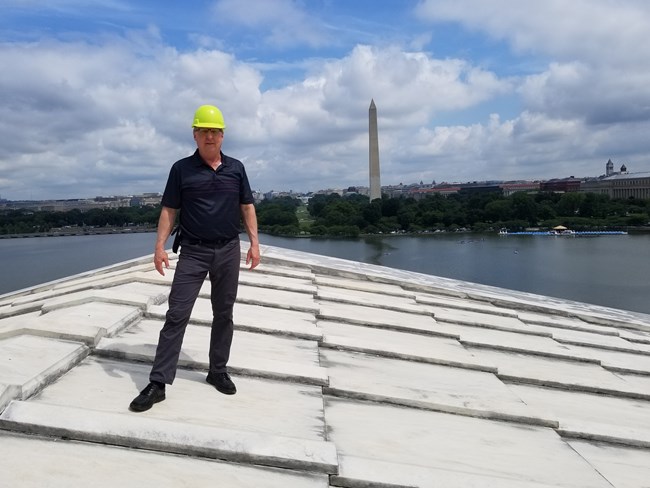Last updated: February 22, 2023
Article
For Steven Bimm Meaningful Work And Learning Make Room For Endless Possibilities

What is your name and job title?
(Retired) Steven M. Bimm, Program Manager with the Construction Program Management Division (CPMD).
Does curiosity and wonder play a role in being an engineer? If so, how does it impact you and your work?
Curiosity to understand how things in the physical world work definitely plays a major role in being an engineer. The analytical side of being an engineer tends to diminish the wonder of the individual pieces and parts of that world, while perhaps at the same enhance the wonder at the overall natural order and grand design of things around us.
What is one of your favorite facets about being an engineer? Or what might surprise people about being an engineer?
It’s often fun to encounter new things, situations, problems etc.; identify what they are, what they do, or how they’re broken; and then be able to envision creative applications, solutions, or mitigation measures.
What might surprise many people is that sometimes you’re right, but as often as not, at least your initial response is wrong; and that’s OK, because that’s how we learn. That is, of course as long as you don’t just keep doing the same things wrong and expecting different results, which is crazy!
What is one of your favorite park projects that you've worked on and why?
One of my favorite park projects was spending a week at Boston national Historic Park with a group other technical subject matter engineers to assist the park with developing project scopes and budgets for the Service-wide Comprehensive Call. It was an early precursor for what has since become the Project Scoping Assessment program. Our team got to crawl around the crypt area under the Old North Church (Paul Revere), the attic and up into the steeple. We also did project scoping work for the USS Cassin Young destroyer and a whole host of other interesting and historic places. It’s rewarding to work directly with the parks and lend a hand where it really matters.
Tell us about a unique or special technology or practice that you've had the opportunity to experience working with or using in your career? What problem did it solve?
I was an early adopter of digital 3D terrain modeling and using computerized processes to use those models for performing earthwork quantity calculation. The shift in terrain modeling replaced earlier optical/manual processes that dated back to the mid-20th century and were very time and labor intensive. Likewise, computerized earthwork quantity analysis drastically improved accuracy, exponentially increased the speed to calculate earthwork quantities.
If your older self gave your younger self advice, what would it be?
An engineering degree is simply a box full of tools, many of which you will use regularly and others not at all. The true value of an engineering degree is the learning process and analytical skills that it took to earn it – never stop learning and striving to improve those skills. Ask questions when you don’t know something. Additionally, technical expertise will only take you so far in your career; developing both written and verbal communication skills can take you to the next level; and at some point, engineering ultimately becomes a business, so take some time to learn those skills as well.
